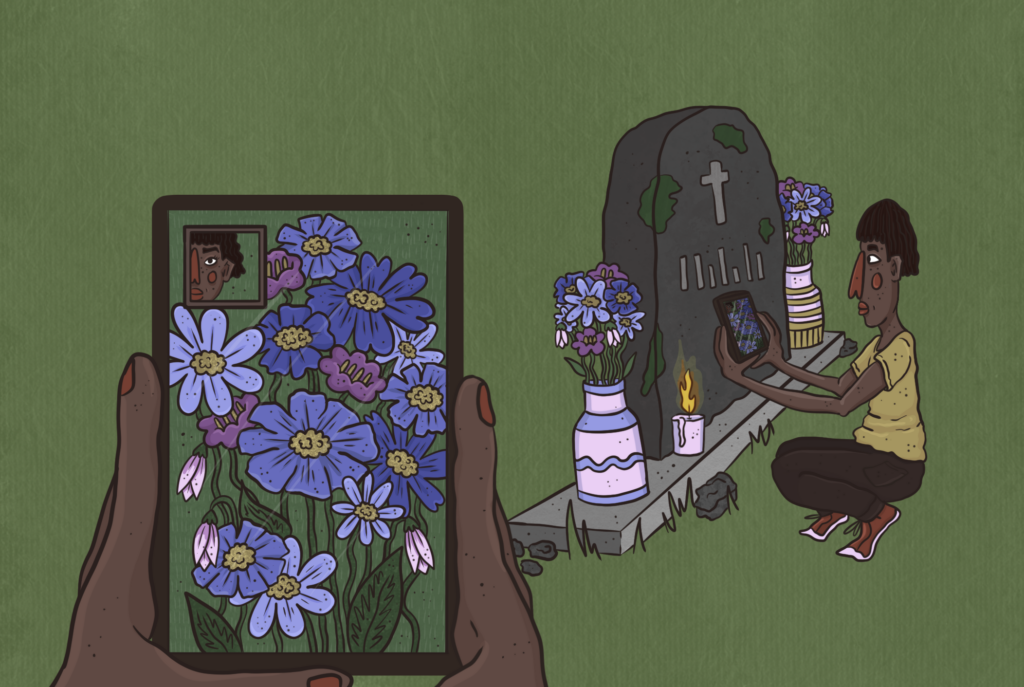The familiar tinkle of a notification with the alarming title of "

When writing this article, BeReal is the number one app on the App Store in Sweden. A platform to share, when prompted by a notification, exactly what you are doing, in a two-minute window, through a picture from the front and back camera. A statement of authenticity is agreed to by users of the app who are called out for posting after the allotted time or even for retaking their picture. The app itself comes with the ominous warning that: ‘BeReal is life, Real life, and this life is without filters’. As the almost instant success of BeReal continues to grow however it is important to question whether the authenticity the app prides itself on is in fact a reality. Are we as users ever able to accurately present our ‘real life’, without worries of judgement or feelings of inadequacy when compared to others?
The app has been labelled as the anti-instagram by journalist Queenie Wong, a reaction against overly manicured and edited culture of the Instagram influencer and as a result has broken through the heavily saturated social media market. Despite only being released at the end of 2019, BeReal now boasts over 21 million monthly users, as downloads increased by 315% in 2022. While these figures are impressive, they also highlight an attempted authenticity overhaul in social media when compared to the $700 Billion loss of value attached to Mark Zuckerberg’s company Meta this month.
As Instagram and Facebook, both owned by Meta, fail to engage their younger users, why is it that the mundane and at times voyeuristic nature of BeReal has become such a hit? I asked Rosie Holt, a student at Lund, what she sees when scrolling through her BeReal. “I see laptop screens, lunch being prepared, dancefloors and the occasional exposé of a sneaky link”. When asked about why she uses the platform she expressed “a unifying feeling of normalcy and an opportunity to document the ordinary which you can’t do on Instagram”. She did wish to add however that after having the app for around a year and a half, it was beginning to feel “relentless”, with “a notification every single day”. A media masters student, who wishes to remain anonymous, at Lund also described how they were “left feeling dissatisfied with my own activities, constantly comparing my day to my friends”. The feeling shared by many other students I interviewed, feelings that heavily conflict with the selling point of BeReal and insistence of authenticity.
As Instagram’s #ad boasts over 18.5 million posts, it is clear Instagram has become a money-making tool for those pushing morning routines, clean girl aesthetics and shameless self-promotion. A report from The Wall Street Journal found that Instagram engagement was declining due to the app’s inability to keep up with the changing way content is consumed on social media such as Tik Tok. In reaction to their waning relevance, it has been reported by CNET that Instagram is experimenting internally with features identical to BeReal, as they attempt to keep up with this growing trend of authenticity.
When interviewing others on their thoughts on BeReal’s huge and growing success Millie, a student at Lund, describes her own experience on the app. She feels people are still “showing the best version of themselves”, often “waiting until their socialising or out of the house until they post their update”. She also revealed that “now so many people have BeReal my own posting becomes more self-conscious”.
This feeling of diminishing authenticity described by Milie appears to be universal from the interviews conducted. We are all guilty of delaying a post, worried that one more picture in bed might just be a little too authentic. This does however undermine Alexis Barreyat and Kevin Perreau’s intentions behind their creation of the app and suggest that authenticity and social media are perhaps an unlikely pairing.








